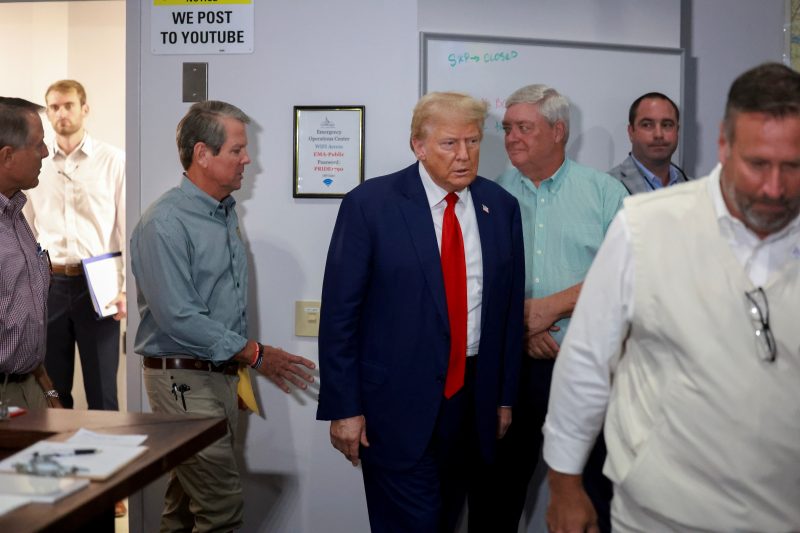In recent years, the issue of misinformation has become increasingly prevalent in various aspects of society, including natural disaster responses. One high-profile individual who has been criticized for peddling misinformation in such situations is former President Donald Trump. Throughout his time in office, Trump garnered significant attention for his handling of natural disasters and the dissemination of inaccurate information.
One of the most notable instances of Trump spreading misinformation during a natural disaster response was in the aftermath of Hurricane Maria in 2017. The hurricane devastated Puerto Rico, causing widespread destruction and loss of life. Despite the magnitude of the disaster, Trump downplayed the severity of the situation, claiming that the death toll was much lower than reported. This misinformation not only misled the public but also hindered relief efforts and the accurate assessment of the disaster’s impact.
Furthermore, Trump’s tendency to peddle misinformation extended to other natural disasters, such as the wildfires that ravaged California during his presidency. In a series of tweets, Trump made unfounded claims about the causes of the wildfires, attributing them to forest mismanagement rather than acknowledging the role of climate change. His misleading statements not only undermined efforts to address the root causes of the wildfires but also sowed confusion among the public regarding the best course of action to prevent future disasters.
Moreover, Trump’s penchant for spreading misinformation in natural disaster responses highlighted a broader issue of politicization and manipulation of factual information for personal or political gain. By distorting facts and promoting false narratives, Trump not only eroded public trust in the government but also hindered the effective coordination of disaster response efforts.
The impact of misinformation in natural disaster responses goes beyond the immediate aftermath of the event. It can have lasting consequences on the affected communities, impeding recovery efforts, and exacerbating the challenges faced by survivors. As such, it is essential for public officials and leaders to prioritize the dissemination of accurate and timely information during natural disasters to ensure the safety and well-being of those affected.
In conclusion, the case of Donald Trump’s peddling of misinformation in natural disaster responses serves as a stark reminder of the importance of upholding factual accuracy and transparency in times of crisis. By prioritizing the dissemination of reliable information and avoiding the spread of falsehoods, public officials can better support the affected communities and facilitate a more effective and coordinated response to natural disasters.

